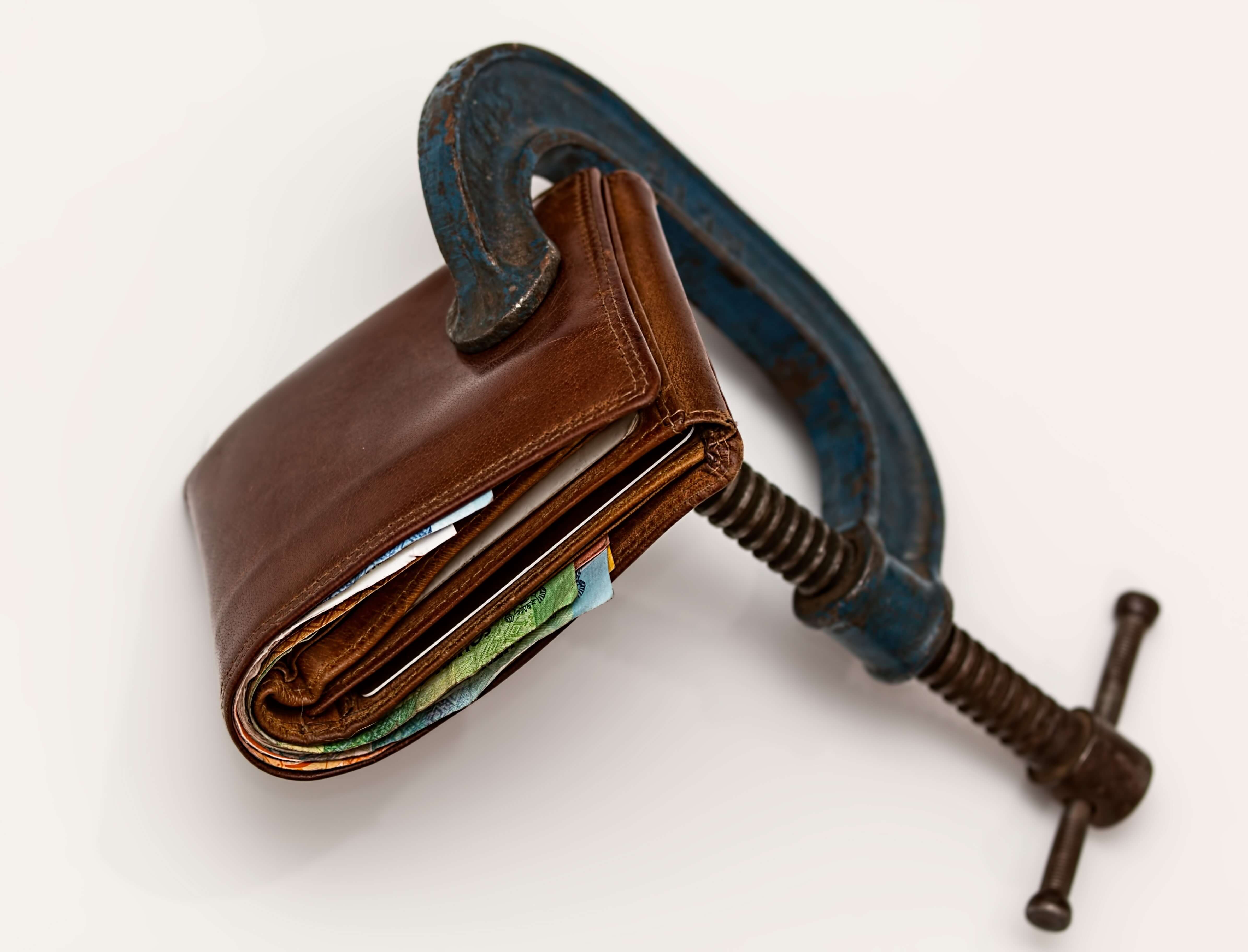 A co-ownership agreement might just save your friendship.
A co-ownership agreement might just save your friendship.
With the average house prices rising, getting on the property ladder can be harder than ever - especially if you're single and don't have the benefit of two incomes to draw upon.
Perhaps you have a decent deposit but your cash flow isn't the best, or maybe it's the reverse, you have great cash flow but it's going to take you a while to save enough for the 10-20% deposit most banks require to approve your mortgage.
If you don't want to wait another year trying to save while also paying rent, you may have discovered that pooling resources with a close friend or relative could be just what you need to get your foot in the property game. Buying a house with friends and family is becoming increasingly popular, but before you dive right in and start applying for mortgages together there are a few things you should consider first.
1. Partnering with the right person
Buying your first home is a massive step. It can be both exciting and challenging, and is bound to throw you a few curve balls along the way. If you choose to go on this journey with someone else, you're going to want someone who will celebrate those exciting moments with you, as well as someone who is reliable both financially and practically.
Open communication is going to be essential. You will both need to be open about your finances with one another, and be able to talk through disagreements. Understanding what everyone wants as an outcome will involve a few frank, and sometimes uncomfortable conversations. Knowing you've found a good partner to buy with is helped if those conversations are easy to have.
2. Understanding your liability
Often buying a home with a friend or family member is scrutinised even more harshly by mortgage lenders than buying individually or as a couple (even though it's practically the same thing right?!). Because of this, it is important to understand how your mortgage is viewed by a lender and what that means in terms of your liability.
Although you will only own a portion of the home, you will be liable for the entire mortgage - yes that means you're liable for your co-owner's part of the mortgage too. It's important to know this because if your co-owner starts falling behind on their repayments it will fall to you to pick up the slack. This will even be the case if something unfortunate were to happen to them and they were unable to work, or meet their repayment obligations.
Also keep in mind that if you apply for another loan in the future the bank will only view your portion of the house as an asset, while the entire mortgage balance will be seen as your liability (even though hopefully your co-owner will be paying back their share).
3. Purpose of the house
Are you buying your new home to live in, or are you planning on renting it out to generate a passive income? It's important to decide this before you buy, as your decision will effect your eligibility for funding from things such as KiwiSaver and HomeStart grant.
There are several criteria you must meet in order to withdraw money from your KiwiSaver funds, your lawyer will talk you through these criteria and if you're eligible they will file the necessary paperwork to help you access those funds. The most applicable criteria to note here, is that typically you can only draw upon your KiwiSaver funds to purchase your first home if you will be living in that home for at least 6 months after settlement.
For those who are eligible, the HomeStart grant can be a really helpful contribution towards funding your mortgage. If both you and your co-owner are eligible you could each receive up to $5,000 towards the purchase of your new home. Bear in mind that this grant is capped at $10,000 per house, so if there were more than 2 people purchasing together you won't be able to receive more than $10,000 combined.

4. Financial inequities
What happens if one person is contributing more of the initial deposit amount? Do they get the same amount extra back if the house sells in future or will it be an adjusted amount to match the equity gain? How about a situation where someone is paying more of the mortgage, will they be entitled to more of the sale value of the property? These are the things you need to discuss before you even think about house hunting.
Partnering with the right person should make these conversations easier and it's important to have them before any contracts have been signed. Firm agreements, open expectations and frequent communication are all recipes to ensure that the partnership ends as strong as it began.
5. Insurance
It's essential for homeowners to have life insurance as a condition of every mortgage. This covers the value of the loan in the event that the worst were to happen. It becomes even more essential when both parties are relied upon to keep repayments flowing, and the bank happy.
While you will need to have life insurance to get your mortgage there are other insurances you may want to consider including as a must in your co-ownership agreement. Income protection insurance covers things like mortgage repayments if you lose your primary source of income. Perhaps including a clause that each co-owner needs to have income protection insurance, could offer peace of mind knowing that should one party be unable to cover their share of the mortgage, that the home will not be repossessed.
6. Relationships
What happens when one of the owners gets into a long term relationship? It's okay if their partner moves in, I mean they own the house they can move in whomever they like right? But what if friction begins to form in the household? It becomes very important for the new partner to be aware of the situation, and to understand the dynamic of the home's ownership.
Also what happens when their relationship becomes long term and is legally viewed as a de facto relationship? How much of the house is their partner now entitled to and how does that impact you?
Conversations around buyouts, living arrangements and future plans may be required to keep a happy and healthy dynamic. If proper contracts have been created it may be clear that only parts of the property's ownership can be divided, limiting the loss one party may experience when a new individual becomes part of the arrangement.
7. Maintenance & Expenditure
If upkeep and maintenance are required on the home does this need to be recorded for future consideration in the valuation of the home? Likewise if substantial renovations or improvements like a new deck are added, the existing contract should be specific on how individuals are reimbursed or compensated for this investment.
This can be quite important if one owner has more of a financial input and the other has more of a hands-on input. Remember not all investments are monetary. It's crucial to have clear expectations and boundaries so that appropriate valuations are placed on each person's input.

8. Difference in opinions
Perhaps one owner wants to sell this house in order to buy their second property, and the other wants to keep it as a rental. Or maybe it's something as simple as one person wanting to add a deck, and the other thinking money would be better spent on a new bathroom (and let's not even go into who gets final say on the tiles!). How do you decide who gets what they want and who misses out?
A good contract will establish clear procedures for how differences are settled amicably. Remember most partnerships start off believing any issue can be easily resolved due to the dynamic of the relationship, but emotions can become frayed and friendships strained. Having an impartial agreement, and an independent person with an unbiased perspective, could be the thing that saves the relationships down the line.
9. Dispute resolution
When two parties strongly disagree on something as major as their property it becomes unlikely that they will agree on how to resolve it on their own.
A co-ownership agreement expects the worst and hopes for the best so that those involved don't have to worry about reaching an impasse. The initial agreement will contain guidance on how disputes are resolved, saving the need for further arguments on how to move forward. In many cases the most likely scenarios will already be outlined in the contract, and can be easily followed. In extenuating circumstances someone outside the problem may be identified as an individual responsible for seeking an amicable resolution.
10. Selling
Ending the partnership does not need to be a bad thing. If the partnership was a stepping stone onto the property ladder then selling the home at the right time can signal a job well done - successfully avoiding any of the common co-ownership pitfalls.
If selling is a mutual decision the split of profits will be outlined in the agreement. It may be 50/50, or a variation of this based on individual contribution, financial security or skills in renovating the home.
In a case where the sale is not a mutual decision there could be provisions in place for the other co-owner to have first refusal on purchasing the home at market value. If this isn't possible then understanding the fairest split of proceeds may require legal assistance. This may also be part of the initial co-ownership agreement prepared before the home was purchased.
Co-owning a property with a friends or family can be an affordable way to get onto the property ladder. However, it can also be a quick way to strain lifelong relationships and create challenges that are hard to overcome. Legal agreements created before purchase can alleviate a lot of the stress of co-ownership, and help you avoid many of the common pitfalls.
With these agreements in place, and effective legal council there is a good chance that the unique relationship that fostered such an ambitious venture remains strong no matter the circumstances faced.
To discuss buying a home with a friend or family member speak to a member of the GQ team today, or to discover how much a lawyer could cost for your property needs click the button below.









.png)

